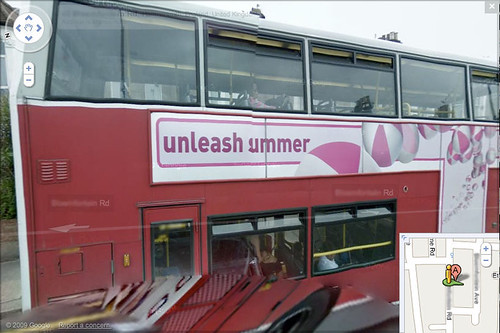Over the last few months, ever since I've wrested it from the tight grip of my sister's hands, I've been reading a book about growing up. I was intrigued from the first moment I saw it, when I glanced upon its cartoonish cover and funny title back in October when I spent a weekend in Germany. The book is called When I'm Big and purports to be a self-help manual for those stuck in the void between adolescence and adulthood.
It also claimed, on the front cover, to be a companion for those stylish fellows sporting messenger bags, and as such it was only natural that my sister had bought it the moments she saw it on some discounter's shelf. She is the proud owner of several such bags. One is even customizable with individual flaps that you can buy for more money I'd ever spend on an entire bag in a hip boutique in a hip part of Berlin. The flaps are made from disused marquees, reclaimed driftwood, shredded LP covers and similar altars of individuality.
I own two messenger bags myself, but there is nothing chic or dashing about them. They have a collective age of fifteen years and are nothing more than protective pouches for two of my laptops, their design reduced to black simplicity and soft padding. Since the arrival of the Eee, they've spend most of their time in a dark corner of my living room, nearly invisible because of the low contrast. The Eee itself disappears into any little bag at hand, most often the small backpack that I carry through town.
While I didn't feel addressed by the title of the book, its topic spoke to me with vehemence. Deep inside, further down now than four years ago – and that's probably a good sign – I long to be the student I used to be. The life free of any responsibility that I used to lead, beholden solely to my desires and to the degree I had to finish, was utterly enjoyable but can obviously not last. I've been called doctor for more than four years now, and students don't necessarily see a peer in me anymore. They come to ask for advice.
How to handle this transition is a tricky question. How do you avoid turning into what you despised your parent's generation (if not your parents) for? This was the kind of quandary that went through my head during the two weeks I spent in Germany around Christmas when, removed from the craze of London and most conventional excitement, I entered a deeply contemplative mood. It was only natural that I would beseech my sister to give me the book. She has, after all, a full three years ahead of her until reaching the age that I already carry heavy on my shoulders.
It turned out that my sister had bought the book for a reason. She wanted to read it herself and see if there was anything in it that would help her on the crooked and ill-signposted road that is life. She was ahead of me. In October, she kept the book to herself but in December, I found it under the Christmas tree and have been steadily advancing through the chapters.
The book is quite funny. Each chapter takes an item customarily found in fashionable bags and encourages the reader to discard it. The iPod, a can of Red Bull, condoms, a toothbrush, chewing gum, CK1, a macbook, all have to go. I don't usually carry any of this, but the reasons given for chucking each were quite perspicacious and well-argued and inevitably converged on the admonition to grow up to an adult individuality, to graduate, if you will, from the infantile fallacy of self, so succinctly expressed in first law of fashion: "If people are free to do as they please, they usually imitate each other." (frequently attributed to Eric Hoffer)
I had approached the book with some trepidation. I feel sometimes lost in time, long left but not arrived yet. But once I had understood the thrust of the book, I became calm and confident. So what if I don't have a presentable, permanent apartment? So what if I see my life in a state of flux? So what if my job is temporary and without a clear (in the sense of inevitable) career trajectory? So what if I'm not married with kids yet?
The main counsel of the book was to "become yourself". If that's the answer to all the questions that I've always been too lazy to ask, then I have no reason to worry. I'm there already. I am myself. I don't have a functioning household and don't own my apartment because (at the moment) I don't care to. My peers offer guidance or are elicit hilarity, depending on their actions, but I'm unable to feel a pressure to fit it.
I'm not a kid anymore. I might not have grown up yet but I've certainly not grown old either. I have achieved plenty and I have build an existence that I'm proud of and that makes me happy. I'm far from hovering in an asphyxiating void. The next steps on the way will surely come, once the time is right. I'm not afraid, nor am I anxious. My life is good, and I don't need a book to tell me what to do.

